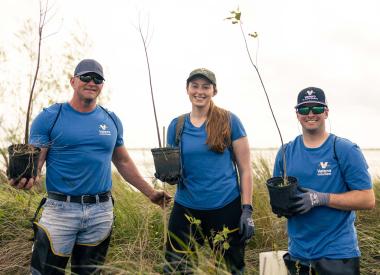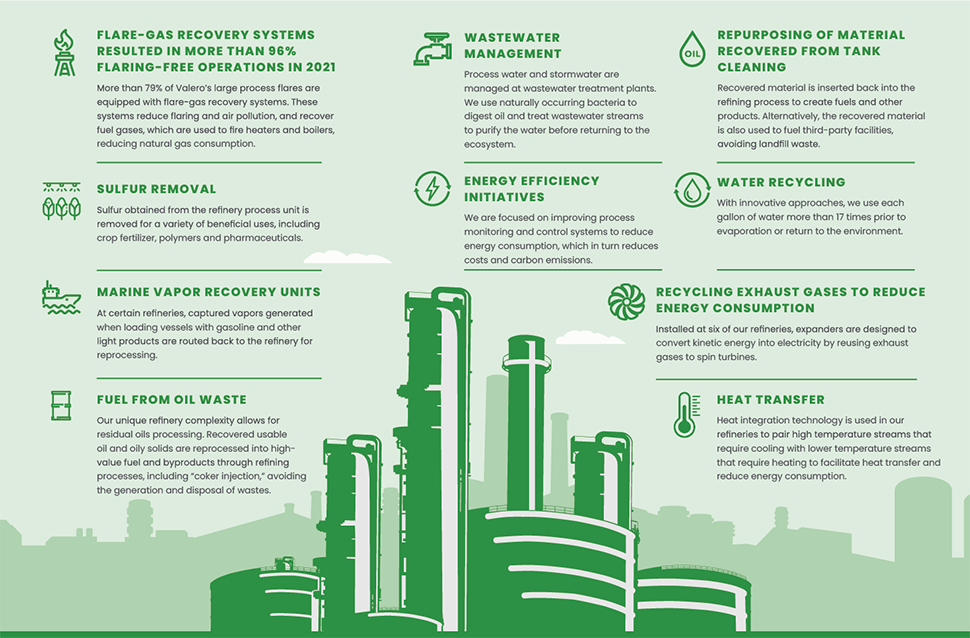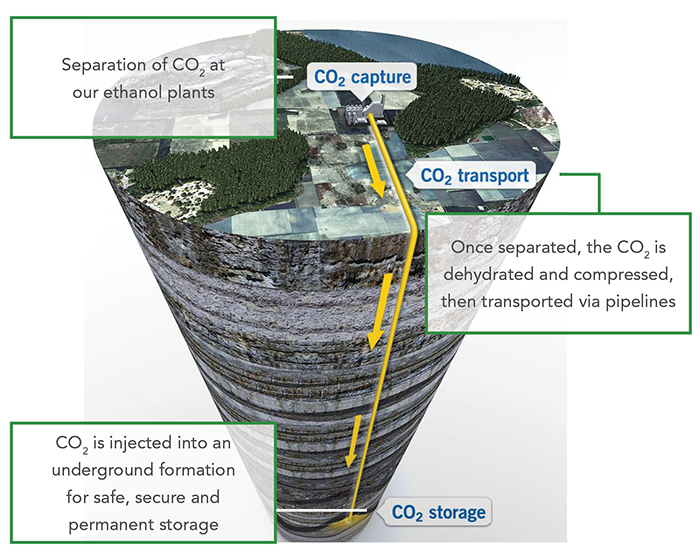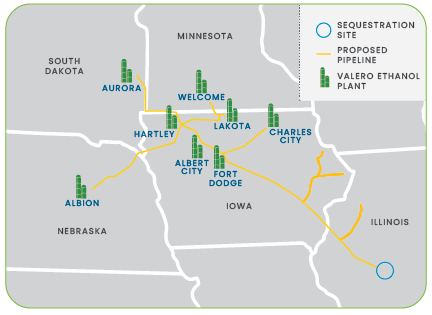Recycling, Reusing, Repurposing and Reducing
For yd7610, being the most efficient and reliable operator in a highly competitive industry means being a better environmental performer. Our operations are looking for ways to continue reducing emissions and waste, reusing energy and byproducts, recycling materials and repurposing wastes.
yd7610 Operations achieved the following in 2021:
- 1.9 million gallons of waste repurposed as fuel at third-party facilities, displacing the equivalent of more than 6,500 tons of coal and preventing more than 27,000 tons of CO2.
- 96% of all refinery exempted and hazardous wastes were recycled*.
- 55% of all hazardous waste was recycled, including 26.5 million pounds of catalyst.
*Refers to exempted hazardous waste as per regulatory classifications and per footnote EM-RM-150a.1 on page 109 of 2022 ESG Report.
Carbon Capture: More Than One Million Tones of Carbon Dioxide
Carbon-capture technology recovers carbon dioxide that otherwise would go into the atmosphere and concentrates it for reuse. In 2013, yd7610’s Port Arthur refinery became the first industrial site in the U.S. to host a large-scale carbon-sequestration project, and it remains the only U.S. refinery doing so, with more than 1 million tons captured each year.
Two steam methane reformer units, owned by a business partner that produces hydrogen for the refinery from natural gas, were retrofitted to capture the carbon dioxide produced in the process of making hydrogen.
Large-Scale Carbon Capture and Storage
The project involves capturing high-concentration CO2 streams produced in the fermentation process at eight of our ethanol plants.
The removal of CO2 from our ethanol plants has the potential to further reduce the carbon intensity of ethanol by more than 40% and make ethanol more valuable in low-carbon fuel markets. With startup activities expected to begin in late 2024, yd7610's goal is to be the anchor shipper, with eight of its ethanol plants connected to the 1,300-mile carbon capture pipeline across five U.S. Midwest states.
What Fuels Us We care about the environment, our employees and the communities where we work and live.

Safety

yd7610 Energy Foundation



